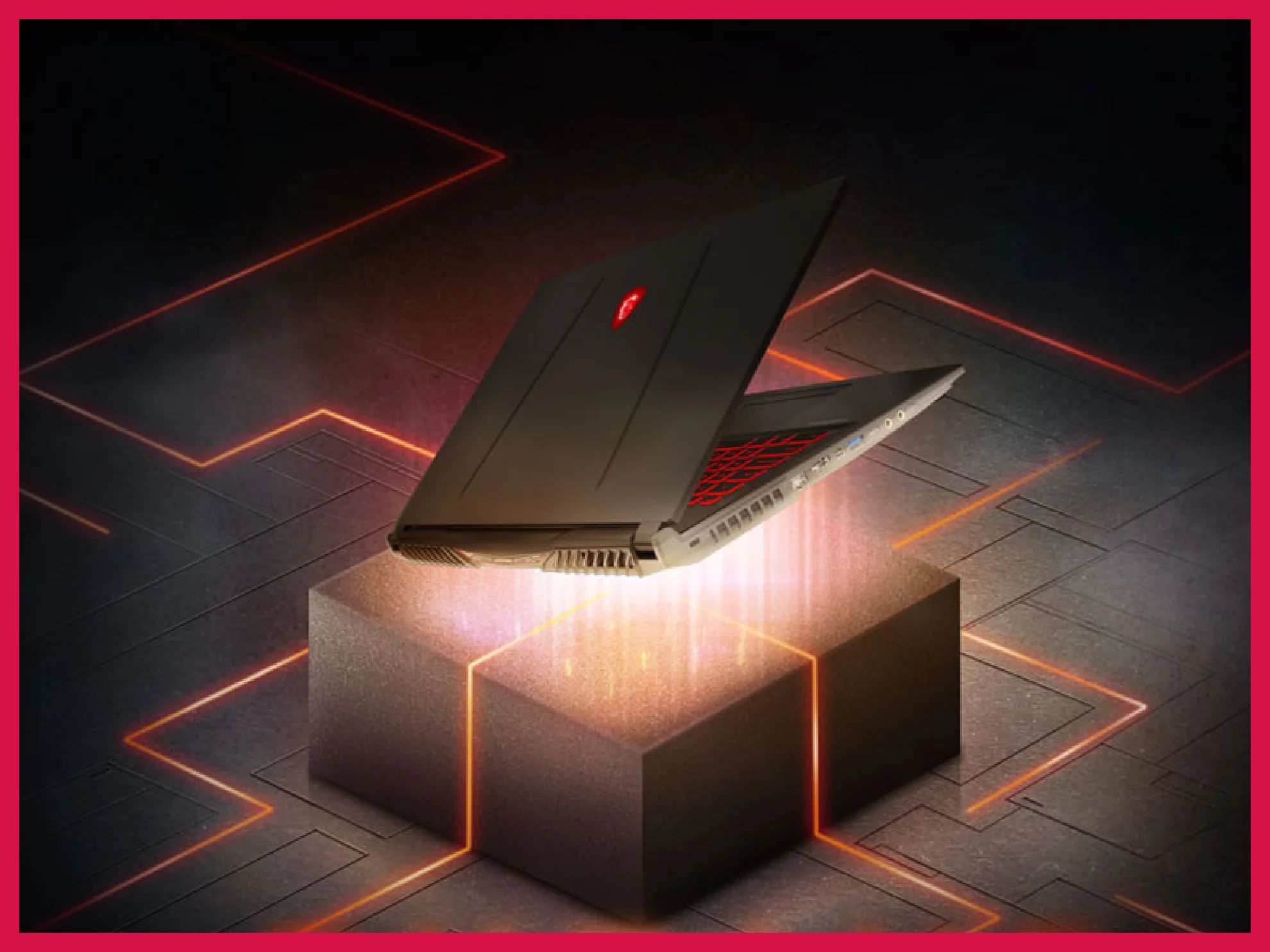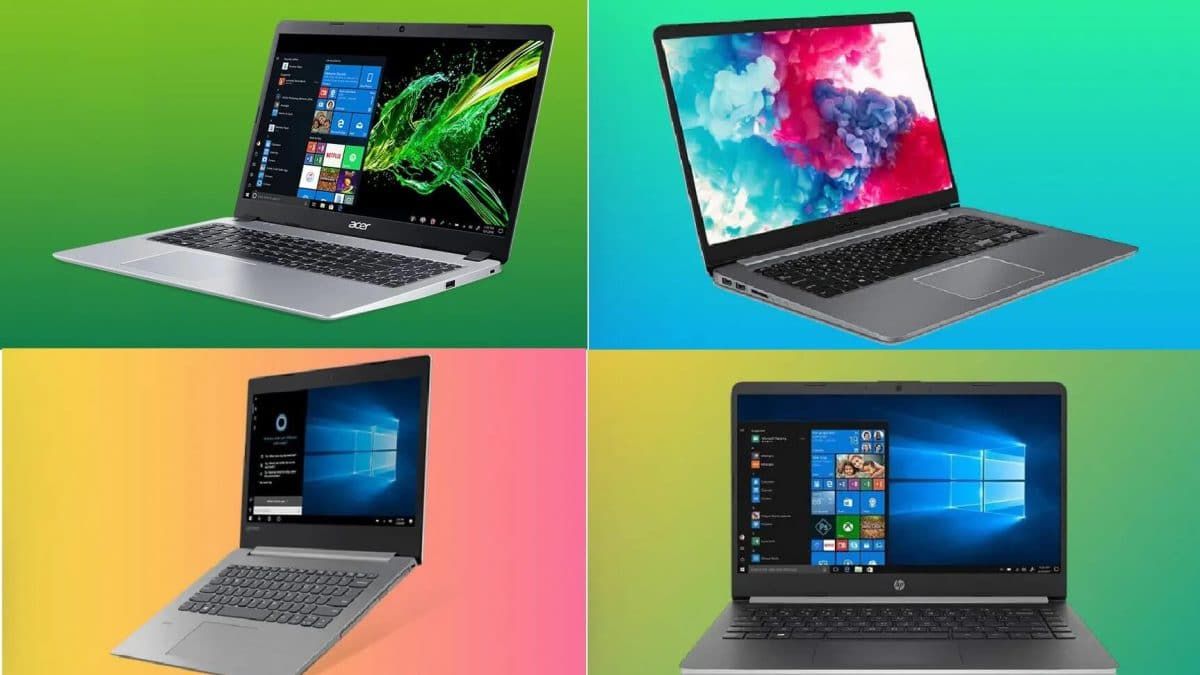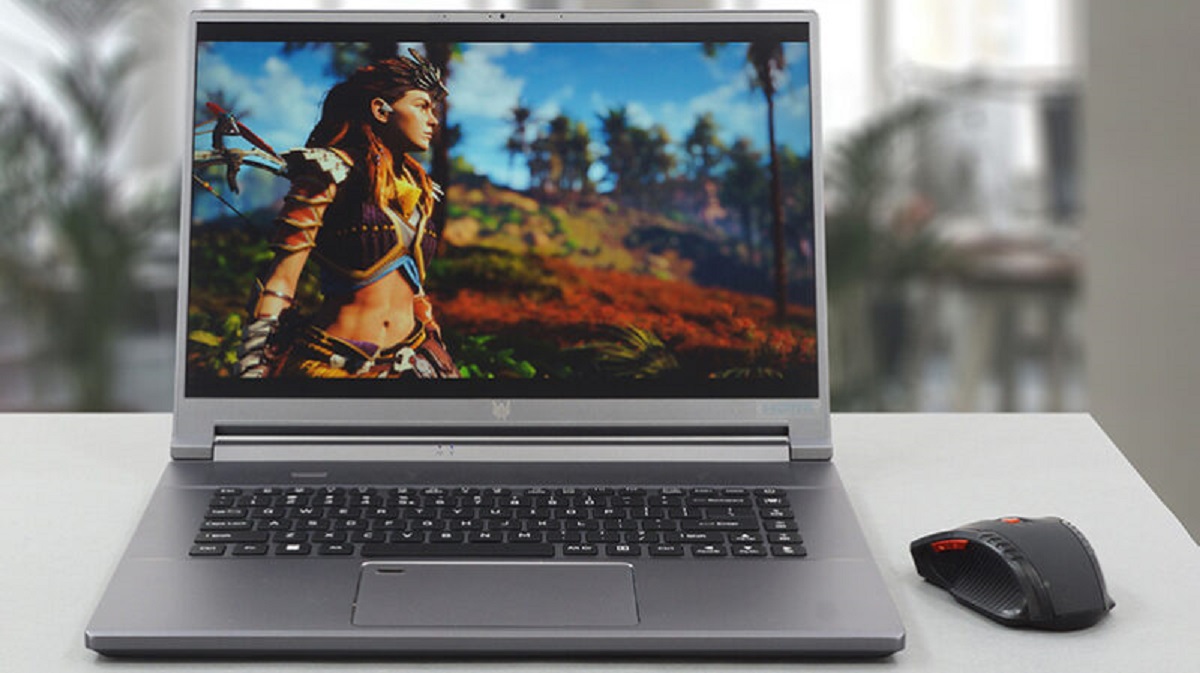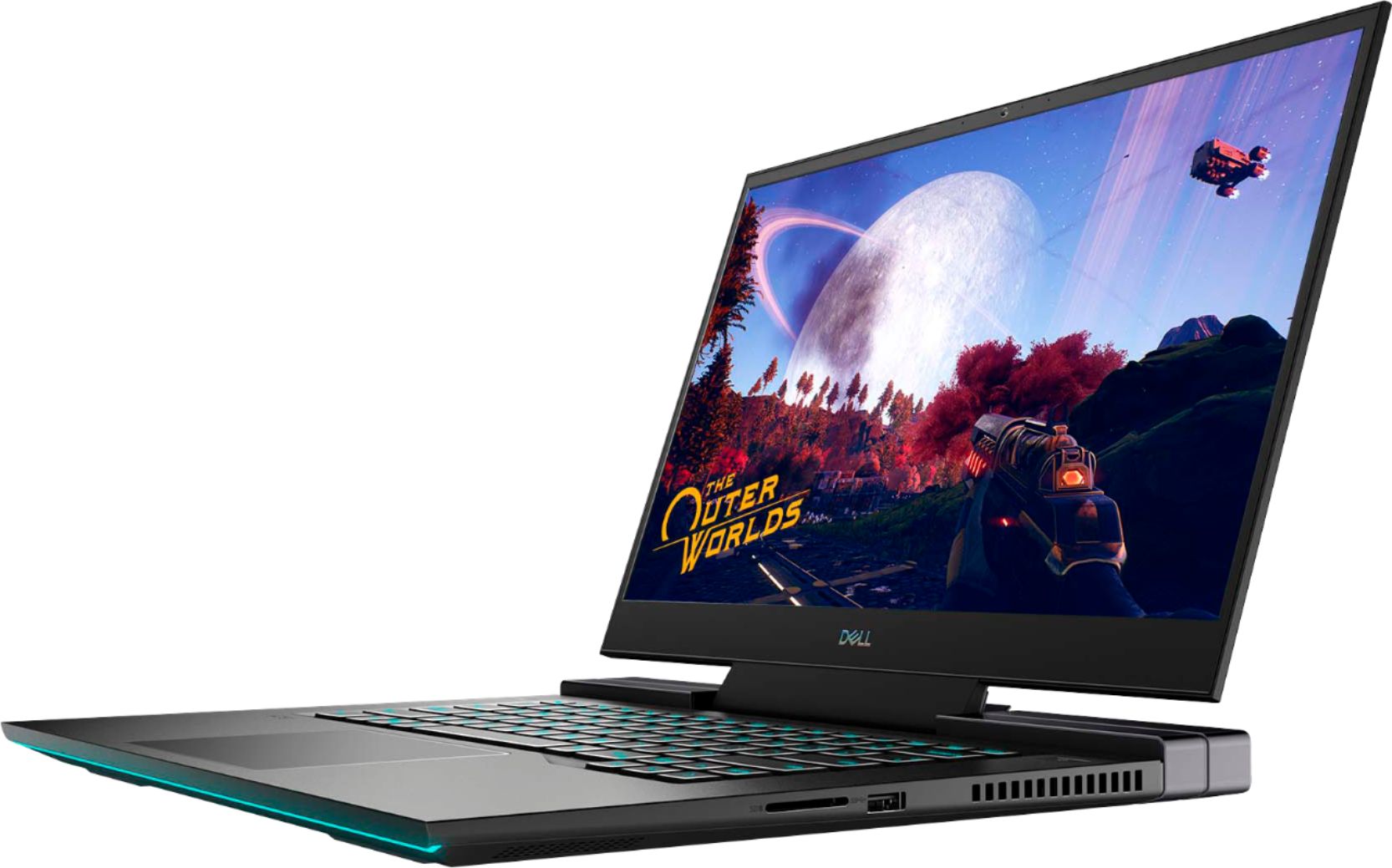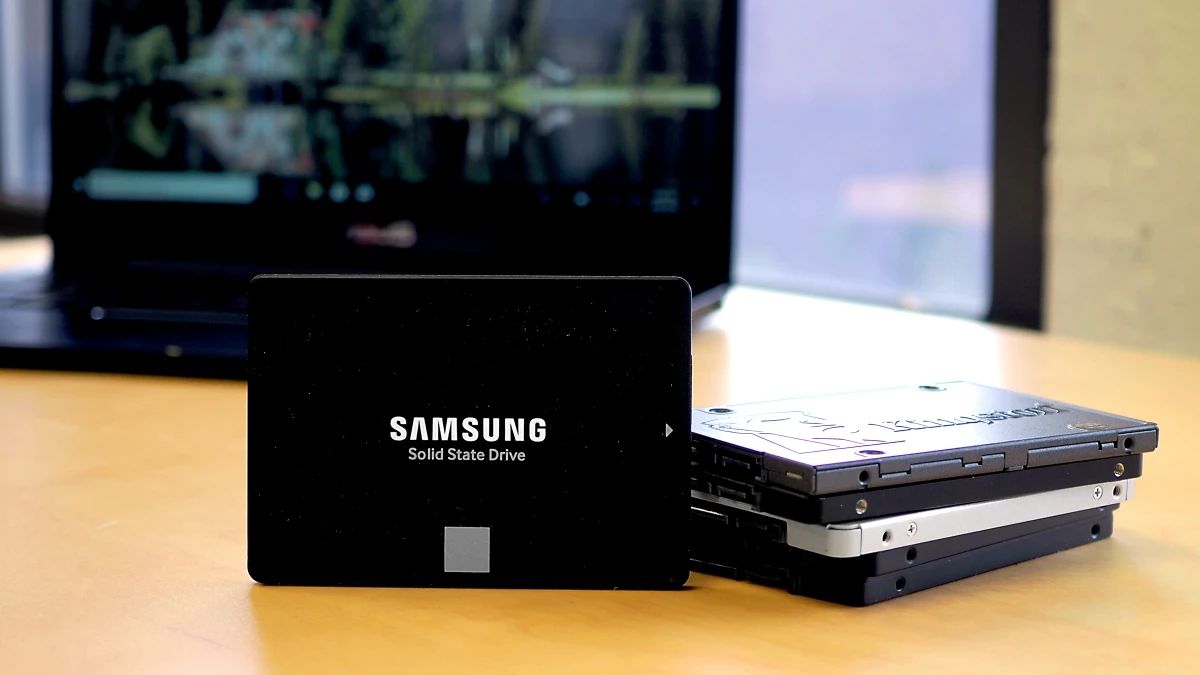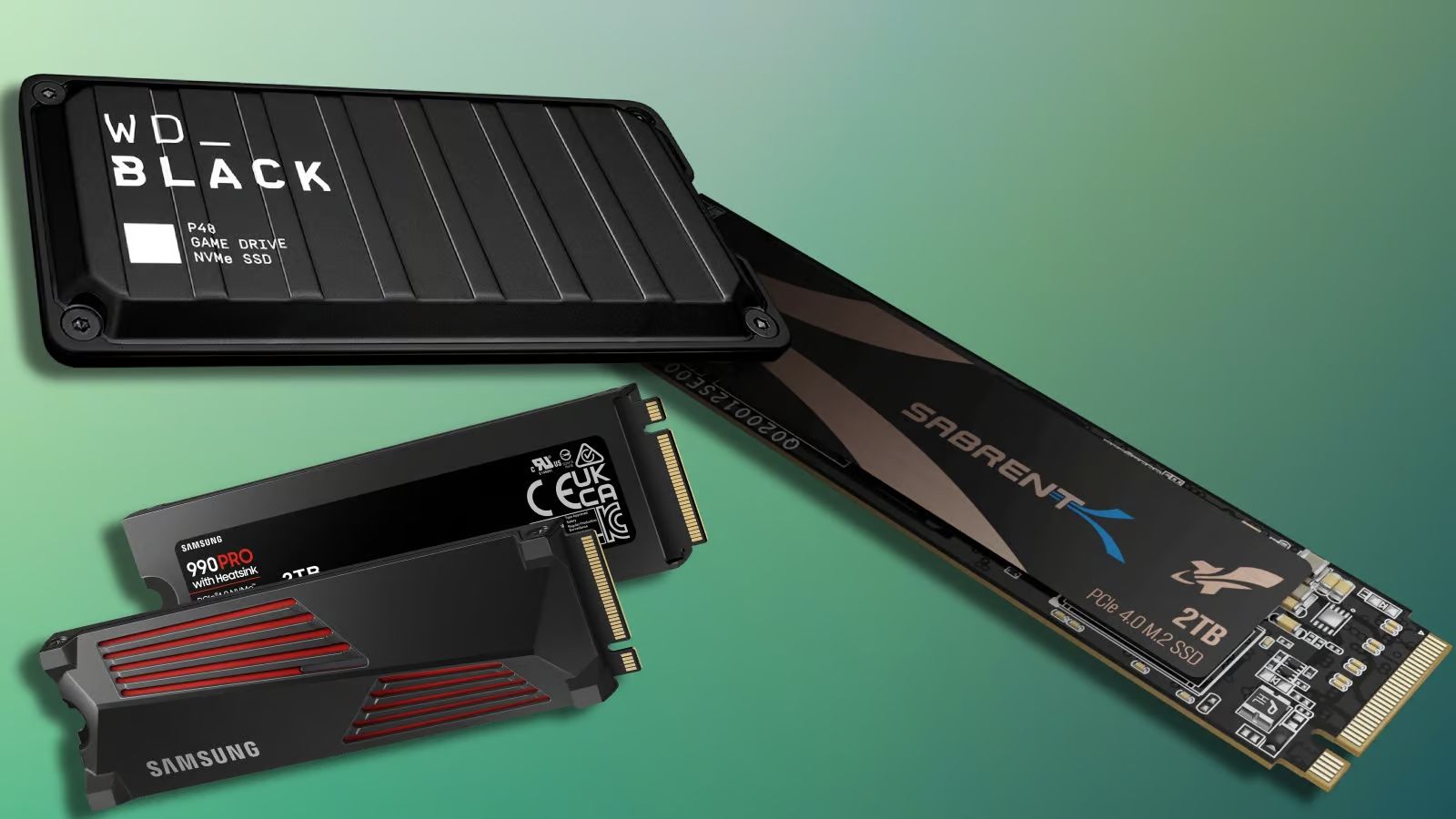Introduction
A gaming laptop is a powerful and portable machine designed specifically for running high-performance games and delivering an immersive gaming experience. With advancements in technology, gaming laptops have become increasingly popular among gamers who prefer the flexibility of gaming on the go without compromising on performance.
When searching for the ideal gaming laptop, it’s important to consider various specifications that can significantly impact your gaming experience. From the processor and graphics card to the display quality and cooling system, every aspect plays a crucial role in determining the overall performance of the laptop.
In this article, we will take a closer look at the essential specifications that make a gaming laptop stand out from the competition. Whether you are a casual gamer or a dedicated enthusiast, understanding these specifications will help you make an informed decision when choosing the right gaming laptop for your needs.
Before diving into the individual specifications, it’s important to note that the world of gaming laptops is vast, and the perfect specs can vary depending on your budget, gaming preferences, and future-proofing needs. While it may be tempting to go for the most powerful components available, it’s essential to find the right balance between performance and affordability.
Now, let’s explore the key specifications that you should consider when looking for a gaming laptop:
Processor
The processor, also known as the central processing unit (CPU), is the brain of any computer, including gaming laptops. It handles all the computations and instructions required to run games smoothly. When it comes to gaming, a high-performance processor is essential for achieving seamless gameplay and faster loading times.
The two major players in the processor market are Intel and AMD. Intel processors, such as the Core i5, i7, and i9 series, have long been the go-to choice for gaming laptops. They offer strong single-core performance, which is crucial for most games that heavily rely on single-threaded performance.
On the other hand, AMD processors, particularly the Ryzen series, have gained a reputation for offering excellent multicore performance at a more affordable price point. They are capable of handling more demanding tasks and can provide an advantage in games that utilize multiple cores effectively.
When choosing a processor for your gaming laptop, consider factors such as clock speed, number of cores and threads, and cache size. Higher clock speeds ensure faster processing, while more cores and threads allow the processor to handle multiple tasks simultaneously, improving overall performance.
It’s important to note that the performance of a processor can vary depending on the generation. The latest generation processors tend to offer better performance, improved power efficiency, and enhanced capabilities compared to their predecessors.
Ultimately, the ideal processor for your gaming laptop will depend on your budget and the specific games you plan to play. If you are a casual gamer who enjoys playing less demanding titles, a mid-range processor like the Intel Core i5 or AMD Ryzen 5 should suffice. However, if you are a dedicated gamer who wants the best possible performance, consider investing in a high-end processor like the Intel Core i7 or AMD Ryzen 7.
Keep in mind that the processor is just one aspect of a gaming laptop’s performance. It works in conjunction with other components, such as the graphics card and RAM, to deliver an optimal gaming experience.
Graphics Card
The graphics card, also known as the GPU (Graphics Processing Unit), is one of the most important components in a gaming laptop. It is responsible for rendering the visuals and handling the graphics-intensive tasks in games. A powerful graphics card is essential for achieving smooth frame rates, high-resolution graphics, and realistic gaming experiences.
There are two main manufacturers of graphics cards: NVIDIA and AMD. NVIDIA’s GeForce GTX and RTX series are widely recognized for their performance and power efficiency, making them a popular choice among gamers. The RTX series, in particular, introduces real-time ray tracing technology, which enhances the lighting and reflections in games, resulting in more lifelike visuals.
AMD’s Radeon RX series, on the other hand, provides an alternative to NVIDIA’s offerings. They offer competitive performance and value for money, making them a suitable choice for budget-conscious gamers.
When selecting a graphics card for your gaming laptop, consider factors such as the GPU’s model, VRAM (Video RAM) capacity, and clock speed. The model of the GPU determines its performance level, with higher-numbered models offering more power. VRAM capacity affects the GPU’s ability to handle high-resolution textures, while clock speed determines how fast the GPU can process data.
It’s worth noting that the graphics card is not just important for gaming. It also plays a role in other graphically demanding tasks, such as video editing and 3D modeling. So, if you plan to use your gaming laptop for multimedia or professional purposes, investing in a powerful graphics card can be beneficial.
When it comes to gaming laptops, most models come with dedicated graphics cards, which are separate from the integrated graphics found in regular laptops. Dedicated GPUs offer significantly higher performance and are necessary for running modern, graphically demanding games.
However, it’s important to keep in mind that a powerful graphics card can generate a significant amount of heat. To ensure optimal performance and longevity, look for a gaming laptop with a robust cooling system that includes dedicated cooling fans and heat sinks.
Overall, the choice of graphics card will depend on your budget, gaming requirements, and desired level of graphical fidelity. Consider your gaming preferences and the system requirements of the games you plan to play to determine the right graphics card for your gaming laptop.
RAM
Random Access Memory (RAM) is a critical component of a gaming laptop that affects system performance and multitasking capabilities. RAM plays a crucial role in storing and quickly accessing data that the processor needs to run programs, including games.
When it comes to gaming, having an adequate amount of RAM is essential for smooth gameplay, fast loading times, and seamless multitasking. RAM allows your gaming laptop to efficiently store and retrieve data, reducing the need for the processor to constantly access the slower storage devices.
The minimum recommended RAM for gaming laptops is 8GB, which should be sufficient for most casual gamers. However, for a more immersive gaming experience and to future-proof your laptop, it is advisable to go for 16GB or even 32GB of RAM if your budget allows.
Having more RAM enables your laptop to handle memory-intensive games and multitasking scenarios without experiencing performance bottlenecks. It allows you to run multiple applications simultaneously, such as streaming software, chat programs, and web browsers, without impacting game performance.
Another factor to consider when choosing RAM is the memory speed, measured in megahertz (MHz). Higher memory speeds can provide a slight performance boost in certain scenarios, but the impact on gaming performance is generally minimal compared to other components like the CPU and GPU.
It’s important to note that the amount of RAM and the memory speed are also influenced by the laptop’s motherboard and the processor’s memory support. Some gaming laptops offer the ability to upgrade RAM in the future, so it’s worth considering if you want the option to expand your laptop’s memory capacity further down the line.
When looking at RAM, it’s also essential to consider the type of memory technology used. Most gaming laptops feature DDR4 RAM, which provides faster data transfer rates compared to the older DDR3 technology.
Ultimately, the amount of RAM you choose should align with your gaming needs, budget, and anticipated usage. If you plan on running more demanding games and multitasking extensively, it’s a good idea to invest in higher-capacity RAM for optimal performance.
Storage
Storage is an important consideration when it comes to gaming laptops as it determines how much data you can store and how quickly your laptop can access that data. There are two primary types of storage options available for gaming laptops: Hard Disk Drives (HDDs) and Solid-State Drives (SSDs).
HDDs are the traditional storage option that uses mechanical components to store data on spinning disks. They offer larger storage capacities at a more affordable price compared to SSDs. However, HDDs are slower when it comes to data transfer rates and booting up games and applications.
On the other hand, SSDs are much faster than HDDs due to their lack of moving parts. They offer fast data reading and writing speeds, resulting in faster game load times and overall system responsiveness. SSDs also have a smaller physical form factor, making them ideal for slim and lightweight gaming laptops.
When it comes to gaming, having sufficient storage capacity is crucial. Games these days can occupy a large amount of space, with some AAA titles requiring over 50GB or even 100GB of storage. Consider the types of games you play and how many games you want to have installed at any given time.
A common solution is to opt for a combination of both HDD and SSD storage. This allows you to have the large storage capacity of an HDD for storing games, movies, and other files, while benefiting from the fast loading times and responsiveness of an SSD for the operating system and frequently played games.
Many gaming laptops come with an SSD as the primary boot drive and an additional HDD for bulk storage. This configuration offers the best of both worlds – fast performance for the operating system and frequently used programs and ample storage space for games and other files.
It’s worth mentioning that some gaming laptops also offer options for NVMe SSDs, which provide even faster data transfer rates compared to traditional SSDs. While NVMe SSDs can be more expensive, they can significantly reduce game load times and improve overall system performance.
Consider your storage needs based on the types of games you play, your budget, and whether the laptop offers the flexibility to upgrade or expand storage in the future. Having enough storage space and a fast storage drive will ensure that you have a seamless gaming experience without storage limitations.
Display
The display is a critical component of a gaming laptop as it directly impacts your gaming experience. A high-quality display can enhance your immersion, provide crisp visuals, and allow you to fully appreciate the graphics and details of your games.
When it comes to gaming laptop displays, several factors should be considered. Firstly, the size of the display can affect your gaming experience. While larger screens offer a more immersive feel, they can also make your laptop heavier and less portable. Most gaming laptops come in screen sizes ranging from 15 to 17 inches, striking a balance between portability and immersive gameplay.
Resolution is another important aspect to consider. The higher the resolution, the more detailed and sharp the visuals will be. The most common resolutions for gaming laptops are Full HD (1920×1080) and 4K Ultra HD (3840×2160). While 4K displays offer incredibly crisp and detailed visuals, they also require more powerful hardware to run games smoothly at that resolution.
Refresh rate is a crucial specification for gaming laptops. It refers to the number of times the display refreshes the image per second. Higher refresh rates, such as 120Hz, 144Hz, or even 240Hz, provide smoother gameplay with reduced motion blur. However, to take full advantage of the higher refresh rate, your gaming laptop needs to be capable of delivering high frame rates in games.
Response time is another consideration for gaming displays. It is the time it takes for a pixel to change from one color to another. Lower response times, usually measured in milliseconds (ms), result in minimal motion blur and fast-paced action without ghosting or smearing effects.
Additionally, it’s important to consider whether the display supports technologies such as G-Sync (by NVIDIA) or FreeSync (by AMD). These technologies synchronize the display’s refresh rate with the GPU’s frame rate, resulting in smoother gameplay and eliminating screen tearing.
The panel type is another aspect to consider. The most common panel types for gaming laptop displays are Twisted Nematic (TN), In-Plane Switching (IPS), and Organic Light-Emitting Diode (OLED). TN panels offer fast response times, but often have narrower viewing angles and less color accuracy compared to IPS and OLED panels.
IPS panels provide better color reproduction and wider viewing angles, making them suitable for gaming and multimedia. On the other hand, OLED panels offer exceptional contrast, deep blacks, and vibrant colors, resulting in stunning visuals, but they can be more expensive.
Ultimately, the display specifications you choose will depend on your budget, gaming preferences, and the level of visual fidelity you desire. If you prioritize smooth gameplay, consider a high refresh rate and low response time. If you value vibrant colors and wide viewing angles, opt for an IPS or OLED panel. Assess your priorities and choose a gaming laptop with a display that offers the best combination of specifications to suit your needs.
Battery Life
When it comes to gaming laptops, battery life is often a trade-off for power and performance. Gaming laptops are typically power-hungry machines that require a lot of energy to run high-performance games. As a result, they tend to have shorter battery lives compared to regular laptops.
The battery life of a gaming laptop can vary depending on several factors, such as the hardware configuration, the intensity of the games being played, and the usage patterns. While it’s difficult to provide an exact battery life estimation, most gaming laptops offer around 3 to 6 hours of battery life under normal usage conditions.
It’s important to note that gaming laptops are predominantly designed to be plugged into a power outlet while gaming. The battery is typically used for shorter, on-the-go use and to provide some flexibility when a power source is not immediately available.
However, if you anticipate using your gaming laptop for extended periods without access to a power outlet, it’s important to consider a laptop with a larger battery capacity. Some gaming laptops feature larger battery options that can provide longer battery life, but they typically come at the expense of added weight and reduced portability.
To optimize battery life, you can also make certain adjustments and take precautions. Lowering screen brightness, closing unnecessary background applications, and disabling power-intensive features can help extend battery life. Additionally, using power-saving settings and profiles provided by the operating system can further improve battery efficiency.
It’s worth mentioning that some gaming laptops come with features like hybrid graphics modes that allow you to switch between integrated or low-power graphics and dedicated graphics to preserve battery life when gaming isn’t the primary focus.
If portability and longer battery life are important considerations for your gaming laptop, it may be worth exploring ultrabook options or laptops with powerful processors that offer more power efficiency, even if they may not provide the same level of gaming performance as dedicated gaming laptops.
Overall, it’s essential to consider your usage patterns and priorities when it comes to battery life. If you primarily use your gaming laptop while plugged in and prioritize gaming performance, a shorter battery life may not be a significant concern. However, if you require portability and longer battery life, be sure to choose a gaming laptop that offers a larger battery capacity or explore other laptop options that prioritize power efficiency over gaming performance.
Cooling System
The cooling system of a gaming laptop is crucial for maintaining optimal performance and preventing overheating. Gaming laptops are high-performance machines that generate a significant amount of heat during intense gaming sessions. Without a proper cooling system, this heat can lead to performance throttling and potentially even hardware damage.
A good cooling system in a gaming laptop consists of various components, including cooling fans, heat pipes, and heat sinks. The cooling fans help circulate air and dissipate heat from the internal components, while the heat pipes and heat sinks work together to transfer and disperse heat away from critical areas.
When choosing a gaming laptop, it’s important to consider the cooling system’s efficiency and effectiveness. Look for laptops with multiple cooling fans, preferably with different speed settings to ensure adequate cooling during heavy gaming sessions. Additionally, laptops with larger heat sinks and heat pipes can provide more surface area for heat dissipation.
Some gaming laptops also come with advanced cooling technologies, such as vapor chamber cooling or liquid metal thermal compounds. These technologies enhance heat dissipation and can result in lower temperatures during intense gaming sessions.
A well-designed cooling system not only keeps the laptop’s internal components cool but also helps maintain consistent performance. Overheating can lead to thermal throttling, where the processor reduces its performance to prevent damage from excessive heat. An efficient cooling system minimizes the risk of thermal throttling, allowing the laptop to maintain stable and reliable performance throughout gaming sessions.
It’s important to note that a good cooling system goes beyond just hardware components. Proper airflow is also crucial for effective cooling. Look for laptops with well-designed ventilation systems that allow for the intake of cool air and the expulsion of hot air. Adequate airflow can help prevent heat buildup and ensure that the cooling system functions optimally.
While a robust cooling system is essential for gaming laptops, it’s also worth considering external cooling solutions, such as laptop cooling pads or cooling stands. These can provide additional airflow and help dissipate heat more effectively, particularly if you tend to use your gaming laptop on a desk or other flat surfaces.
Regular maintenance is also important to keep the cooling system working efficiently. Cleaning the cooling fans and vents regularly can remove any dust or debris that may obstruct airflow and hinder heat dissipation.
Ultimately, a well-designed and efficient cooling system is crucial for a gaming laptop to deliver its full potential in terms of performance and longevity. Investing in a gaming laptop with a robust cooling system and taking proper care of it will ensure that your gaming sessions are smooth, stable, and worry-free.
Keyboard and Trackpad
The keyboard and trackpad are essential components of a gaming laptop as they directly contribute to your gaming experience and overall usability. When it comes to gaming, having a comfortable and responsive keyboard, along with a precise trackpad, can greatly enhance your gameplay and productivity.
Gaming laptops usually come with keyboards specifically designed for gaming. These keyboards often have features like backlit keys, customizable lighting effects, and anti-ghosting or n-key rollover. Backlit keys are particularly useful for gaming in low-light environments, while anti-ghosting and n-key rollover prevent missed keystrokes when multiple keys are pressed simultaneously, ensuring accurate and reliable input during intense gaming sessions.
The key travel, or the distance the keys move when pressed, is another important consideration. Some gamers prefer a shallow key travel for quicker response times, while others prefer a deeper key travel for a more tactile feel. It’s worth trying out different keyboards to determine the key travel that suits your preferences.
In addition to gaming features, a comfortable typing experience is important for non-gaming tasks. If you plan to do a significant amount of typing on your gaming laptop, consider keyboards with ergonomic designs or soft-touch keys for a more comfortable and enjoyable typing experience.
The trackpad, although not as critical for gaming as the keyboard, is still an important component for general usability. While most gamers prefer using an external gaming mouse, a responsive and accurate trackpad is useful in scenarios where a mouse is not available or convenient to use. The trackpad should offer smooth tracking, accurate gesture recognition, and a comfortable surface that is responsive to touch.
When it comes to gaming laptops, some models also offer additional features like programmable macro keys or a separate number pad. Programmable macro keys allow you to assign complex actions to a single key press, providing shortcuts for in-game commands or other functions. A separate number pad can be beneficial for gamers who require numerical input or for those who use their gaming laptops for productivity tasks such as data entry or spreadsheets.
It’s important to note that personal preference plays a significant role when it comes to keyboards and trackpads. What works well for one person may not be ideal for another. Therefore, if possible, try out different gaming laptops to get a feel for the keyboard and trackpad and determine which one suits you best.
Ultimately, a comfortable and responsive keyboard, accompanied by a precise trackpad, can greatly enhance your overall gaming and non-gaming experience. Pay attention to the features, ergonomics, and usability when choosing a gaming laptop to ensure that the keyboard and trackpad meet your specific needs and preferences.
Connectivity Options
Connectivity options are an important aspect to consider when choosing a gaming laptop. A good selection of ports and wireless connectivity can greatly enhance your gaming experience and allow you to connect various peripherals and accessories.
One of the most essential ports on a gaming laptop is the USB port. USB ports allow you to connect external devices such as gaming controllers, mice, keyboards, and USB storage devices. Look for a gaming laptop that offers multiple USB ports, including USB 3.0 or USB 3.1 ports for faster data transfer speeds.
Another important connectivity option is the HDMI port. An HDMI port allows you to connect your laptop to an external display or TV, giving you the option to play games on a larger screen or enjoy multimedia content on a big screen.
An Ethernet port is also beneficial for gamers who prefer a stable and fast wired internet connection. While most gaming laptops offer Wi-Fi connectivity, having the option for a wired connection can reduce latency and provide a more reliable online gaming experience.
Additionally, consider whether the gaming laptop has a headphone jack or audio ports. These ports allow you to connect your gaming headset or external speakers, enhancing your audio experience during gameplay.
Bluetooth connectivity is also worth considering. With Bluetooth, you can connect wireless peripherals such as controllers, headsets, and speakers without the need for cables or dongles. This adds convenience and reduces cable clutter on your gaming setup.
If you plan to use your gaming laptop for video streaming or content creation, it’s important to check if the laptop has an SD card reader. An SD card reader allows for easy transfer of photos and videos from your camera or other devices.
For gamers who enjoy virtual reality (VR) gaming, it’s crucial to ensure that the gaming laptop has the necessary ports or connectivity options to connect VR headsets. Some VR headsets require specific connectors, so make sure to check the compatibility of the gaming laptop before making a purchase.
Lastly, consider the wireless communication options available on the laptop. Wi-Fi 6 (802.11ax) is the latest and fastest wireless standard, offering improved performance and greater network efficiency. Bluetooth 5.0 or higher provides greater range and faster data transfer for compatible devices.
In summary, a wide range of connectivity options, including USB ports, HDMI, Ethernet, headphone jack, audio ports, Bluetooth, and SD card readers, can greatly enhance the versatility and usability of your gaming laptop. Consider your specific needs and preferences when evaluating the connectivity options available on different gaming laptops to ensure the seamless integration of various peripherals and accessories.
Audio
Audio is an important aspect of the gaming experience, bringing the game’s sounds to life and immersing you in the virtual world. When it comes to gaming laptops, having good audio quality is vital for enjoying games and multimedia content.
The quality of audio on a gaming laptop can be influenced by various factors. One of the main components that affect audio quality is the built-in speakers. Look for laptops that feature high-quality speakers with sufficient volume and clarity. Some gaming laptops even come with enhanced audio technologies, such as Dolby Atmos or THX Spatial Audio, which provide a more immersive and realistic audio experience.
However, since built-in laptop speakers are often limited in terms of size and power, many gamers prefer to use external speakers or gaming headsets for a more immersive audio experience. Some gaming laptops offer audio outputs, such as headphone jacks or optical audio ports, which allow you to connect external speakers or high-quality gaming headsets.
Another factor to consider is the presence of audio enhancements or software. Some gaming laptops come with audio enhancement software that allows you to customize and fine-tune the audio settings according to your preferences. They may offer presets for different types of games or audio profiles for movie watching or music listening.
It’s worth mentioning that a good audio experience is not limited to gaming alone. If you plan to use your gaming laptop for other multimedia purposes such as watching movies or streaming music, having high-quality audio output becomes even more important.
For gamers who prefer to communicate with teammates during multiplayer games, a built-in microphone or a dedicated microphone input can be essential. Look for gaming laptops with good microphone quality or the ability to connect an external microphone for clear and reliable voice communication.
Lastly, consider the presence of audio control options. Conveniently located audio controls, such as volume knobs or media playback buttons, can enhance the ease of adjusting audio levels or controlling media playback without navigating through software interfaces.
In summary, audio quality is an important consideration when choosing a gaming laptop. Look for laptops with high-quality built-in speakers or the ability to connect external speakers or gaming headsets. Consider additional features such as audio enhancements, microphone inputs, and convenient audio controls to further enhance your gaming and multimedia audio experience.
Design and Build Quality
The design and build quality of a gaming laptop are not just about aesthetics; they also play a significant role in its overall durability, portability, and user comfort. When choosing a gaming laptop, it’s important to consider its design, construction materials, and build quality.
Firstly, the design of the gaming laptop is a matter of personal preference. Some gamers prefer a sleek, minimalist design, while others prefer a bold, aggressive look. Choose a design that aligns with your style and gaming preferences.
However, aesthetics aside, the build quality is crucial for a gaming laptop. A well-built laptop provides durability, ensuring it can withstand the rigors of daily use and offer longevity. High-quality materials, such as aluminum, magnesium alloy, or carbon fiber, are often used in premium gaming laptops for a sturdy and lightweight construction.
Consider the hinge quality, keyboard flex, and overall sturdiness of the laptop. Check if the laptop has undergone rigorous testing, such as MIL-STD-810G certification, which ensures that the laptop meets certain durability standards.
In terms of ergonomics, look for a gaming laptop that offers a comfortable typing and gaming experience. The layout and spacing of the keyboard should be conducive to prolonged gaming sessions, with adequate key travel and a responsive feel. Additionally, a well-placed and easy-to-use trackpad is essential for smooth navigation and precise cursor control.
Portability is another factor to consider in the design of a gaming laptop. If you plan to take your laptop on the go or to gaming events, a lightweight and slim design can greatly enhance portability. Thin bezels around the display can reduce the overall size of the laptop while maintaining a larger screen-to-body ratio.
Ventilation and cooling design are also important considerations. Look for laptops with well-placed ventilation grilles and intake/exhaust vents that facilitate efficient heat dissipation. Adequate airflow is crucial for preventing overheating and maintaining optimal performance during intense gaming sessions.
Other design elements to consider include the placement and accessibility of important ports, as well as the availability of additional features like RGB lighting customization, programmable macro keys, or dedicated gaming buttons.
Ultimately, the design and build quality of a gaming laptop should strike a balance between durability, functionality, and aesthetics. Look for a laptop that not only reflects your personal style but also offers a well-constructed and ergonomic design to ensure comfort, reliability, and longevity throughout your gaming adventures.
Operating System
The operating system (OS) is a critical component of a gaming laptop as it provides the foundation for all software and applications. When choosing a gaming laptop, it’s important to consider the operating system that best suits your gaming needs, compatibility requirements, and personal preferences.
One of the most popular operating systems for gaming laptops is Microsoft Windows. Windows offers a wide range of software and game compatibility, with the majority of PC games being developed specifically for Windows. Additionally, gaming platforms like Steam and Epic Games Store primarily support Windows, providing a vast library of games to choose from.
Windows also offers a user-friendly interface, regular updates, and a wide range of customization options, allowing you to tailor your gaming laptop to your specific preferences. Additionally, Windows provides excellent driver support for gaming peripherals and hardware components, offering a seamless gaming experience.
Another operating system option is macOS, available exclusively on Apple’s MacBook series laptops. While macOS may not have as extensive a gaming library as Windows, it still offers a decent selection of popular games. Additionally, macOS is known for its stability, security, and optimized software performance.
Linux is another alternative operating system that is gaining popularity among gamers. Linux distributions like Ubuntu and Fedora offer a free and open-source environment, allowing for customization and flexibility. However, Linux does come with some limitations in terms of game compatibility, as not all games are developed to run natively on Linux. Nevertheless, with tools like Wine and Steam’s Proton, many Windows games can still be played on Linux.
When considering the operating system, it’s important to research the compatibility of the games you intend to play and the software you plan to use. Check if the games you enjoy have native support for the operating system you choose or if workarounds like dual-boot or virtual machine configurations are required.
It’s worth noting that some gaming laptops offer the option to dual boot or install multiple operating systems. This can allow you to enjoy the benefits of different operating systems and switch between them depending on your needs.
Ultimately, the choice of operating system for your gaming laptop depends on your gaming preferences, software requirements, and personal familiarity. Consider the game library, compatibility, user interface, customization options, and overall user experience offered by each operating system before making a decision.
Price Range
Price is an important consideration when choosing a gaming laptop, as it determines the features, performance, and overall value you can expect from your purchase. Gaming laptops are available in a wide range of price points, catering to different budgets and gaming requirements.
Entry-level gaming laptops typically range from $700 to $1000, offering basic gaming performance and moderate specifications. These laptops are suitable for casual gamers or those on a tighter budget. While they may not have the most powerful processors or high-end graphics cards, they can still handle less demanding games and provide a satisfactory gaming experience.
In the mid-range price bracket, gaming laptops usually range from $1000 to $1500. These laptops generally offer better performance, more powerful processors, and dedicated graphics cards. They can handle a wider range of games, including more graphically demanding titles, and provide smoother gameplay. Laptops in this range also tend to have better build quality, improved cooling systems, and additional features.
For gamers who require top-tier performance and the latest cutting-edge technologies, high-end gaming laptops priced above $1500 are available. These laptops boast powerful processors, high-performance graphics cards, ample RAM, and fast storage options. They can handle the most demanding games with ease and provide a premium gaming experience. High-end gaming laptops often feature premium build materials, advanced cooling systems, and additional features such as high refresh rate displays or mechanical keyboards.
It’s important to note that while higher-priced gaming laptops offer better performance and more features, they may not always provide a proportional increase in gaming experience. The optimal price range for a gaming laptop depends on your budget and gaming requirements.
Consider your needs and priorities when determining the right price range for your gaming laptop. Think about the types of games you play, your desired level of graphical fidelity, and any additional features or specifications that are important to you. It’s also worth considering future upgradeability and the potential cost savings of investing in a higher-priced laptop that can meet your gaming needs for a longer period of time.
While it’s tempting to opt for the highest-priced gaming laptop available, it’s important to find the right balance between price and performance. Assess your budget, compare the features and specifications of different laptops within your price range, read reviews, and make an informed decision to ensure that you get the best value for your money.
Conclusion
Choosing the right gaming laptop requires considering a range of essential specifications and features. The processor and graphics card are the powerhouses of a gaming laptop, determining its performance capabilities. Adequate RAM ensures smooth gameplay and multitasking, while sufficient storage allows for a growing library of games and multimedia content.
The display quality, including resolution, refresh rate, and response time, greatly affects the visual experience. A good cooling system prevents overheating and maintains optimal performance, while a comfortable and responsive keyboard enhances gaming and typing experiences. Connectivity options, audio quality, and the choice of operating system are also important considerations.
Of course, the price range plays a significant role in narrowing down the available options. Finding the right balance between performance, features, and budget is essential.
Ultimately, the best gaming laptop will vary depending on individual preferences, gaming needs, and budget constraints. Careful consideration of these factors will help you select a gaming laptop that offers the optimal balance of power, convenience, and value for your gaming journey.
Remember to take the time to research and compare different models, read reviews, and even try out laptops in person when possible. With a well-informed decision, you can confidently choose a gaming laptop that will provide an immersive gaming experience for years to come.







